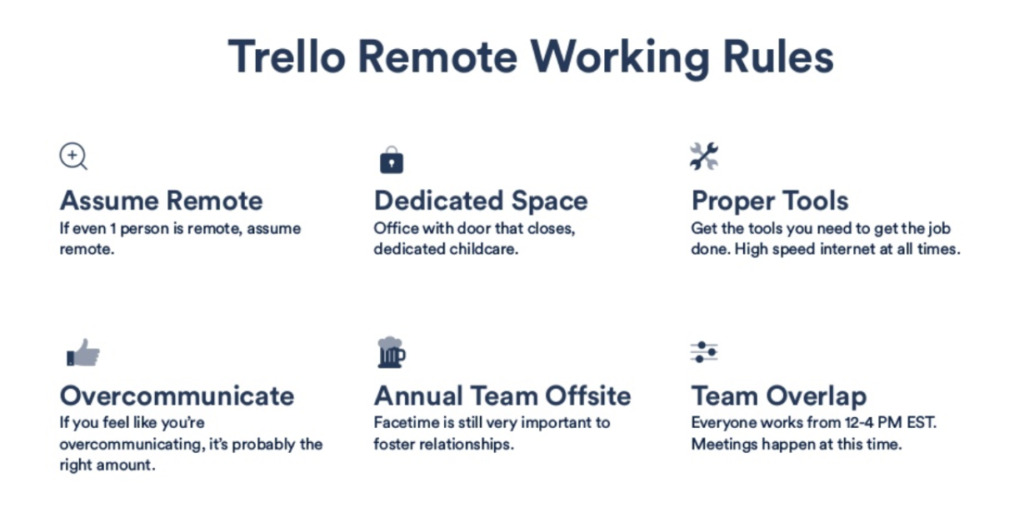Welcome! This is the survival guide for all of you (and us) focusing on working from home during this emergency.
Let us start with the morning rituals.
Every start is easier after you take the first dose of coffee. The only difference from before is that we no longer need to prepare for work or travel to our workplace.
We just need to put on some comfortable clothes that we usually wear around the house (sweatpants, ahem – pajamas) and then nest in front of our computer screen to start working.

Completing tasks
Of course, there are advantages and disadvantages to working from home. The question is: How to be productive and complete all (or most) tasks?
First, you must show enough respect for the work on an individual and team level. Try to improve yourself as a person who works from home and build a team culture (even though you are at home).
We’re in this together (except for those who decide not to participate and then go watch Netflix instead of getting work done). The team must develop an awareness that everyone plays by the same rules, but also that each member of the team has their own rituals.
This actually means that each team member is synchronized with the others (like gears in a machine).

Second, you must develop a flexible schedule. If you don’t get up every day on time and complete the assigned tasks, you will scr*w things up, and everything will collapse.
For example, I have to set 3 alarms to get up on time. But that’s the way I have adapted to. I also try to get at least 7 hours of sleep every night.
Third, you have to have focus. To achieve that, I drink coffee, and it works for me. Also, whenever I work, I listen to some background instrumental music that doesn’t distract me.
My point is, without focus, you won’t be able to follow the team directions or the customers needs. This leads me to the following conclusion:
Communication is key.
We are fortunate to live in a time when technology is at our disposal. We can use Skype / Zoom / Microsoft Teams to communicate. On the plus side, instead of fumbling through 159318651 million messages in a group chat, we save significantly more time by having a video call with the team, client, etc.
We can communicate through software like Skype, where everyone can participate in the decision-making. We also report regularly to our superiors to keep them up-to-date.
What also helps us coordinate is that we use Trello to delegate tasks to all departments.
And finally (in this part, not in this article), deadlines and the responsibility you have are motivators for your productivity. These are the things that make you more aware and more agile.
You know you have no room for error because customers are counting on you (especially during the current global crisis), but also because you don’t want to let down your team that trusts your ability to get the job done.
Time management tips for working from home
Set boundaries for yourself.
I’m sure someone thinks: Because I’m at home 24/7, I can work whenever I want. No, no, no. Don’t do that. Don’t allow yourself to mix your work with your private time.
You are either working or not. There is no third option. Answering emails while working out at home is totally unproductive.
Take control of your schedule.
If your day is not structured you will not have a good time. Therefore, take care of your calendar and update it in a way that will optimize your productivity.

Optimize your work environment.
Some people like to work in total chaos, with piles of objects everywhere, next to them, on them and under them (as if a hurricane had passed through the room). On the other hand, some people like to have a desk in front of them, on which only work-related objects will sit.
The purpose of this is to arrange your workspace in a way that will increase your productivity. It’s a matter of taste so to each their own.
Mythbusters (Work From Home Edition)
There are people who “mock” those who work from home. They were like this, like that, they didn’t work hard enough… Let’s prove them it’s not how it is.
Myth no. 1: Those who work from home don’t work enough
If you don’t physically see people working from home, then they are 100% useless and totally unproductive. Realistically, any employee can neglect work if management does not delegate tasks well or if there is a communication breakdown, regardless of the employee’s location.
If I know exactly what my responsibilities are, when my tasks are due, and if I regularly inform my team/superiors, then there is no theoretical chance that I will be labeled a “work slacker” no matter where I work.
A little intermezzo. Never work from bed. Don’t be a “couch potato” like me. That is, in this case, a “bed potato.”
Why? Because if you regularly work from bed, you will reduce the mental connection between sleep and the bedroom, which makes falling asleep more difficult. You will start to feel you are constantly at work and will no longer have a place to “recover” from work.
Also, if you use electronic devices before bed, your melatonin level will decrease, and your sleep quality will be impaired.
Myth no. 2: Those who work from home constantly have to prove themselves
Some people working from home constantly need to prove they are actually working. They think they have to answer every possible email within two minutes or that they have to be present at every possible meeting.
Don’t you think this is too much? Instead of working, these people worry excessively about how their work is perceived, which results in unnecessary anxiety due to the excessive pressure they put on themselves.
The reality is that people who work from home go to work like any other employee (minus the time it takes to get to work).

Myth no. 3: Home-based workers are available 24/7
It’s great to assume that people who work from home can answer work-related questions anytime, but in reality, it’s not great at all. Just because I’m working from home doesn’t mean I’m available and on the hook.
Because of this, the best practice is to determine which part of the day will be dedicated to work, just as it happens in the office. Don’t turn into a workaholic.
We all need a break occasionally to get out of the working space. Separating work and private life is possible, even if you work from home.
As for the end
Take care of yourself and #StayHome. Not as bad as you think. Now you have time to watch all the movies and binge all the series. You even have time to find your talent for a hobby. You can have fun with your loved ones (if they live with you and if they keep a distance from you).
We hope this pandemic will end soon, but for that to happen, we must do our part by #StayingAtHome.
There are many more topics to cover, but let’s leave something for the future. 🙂

